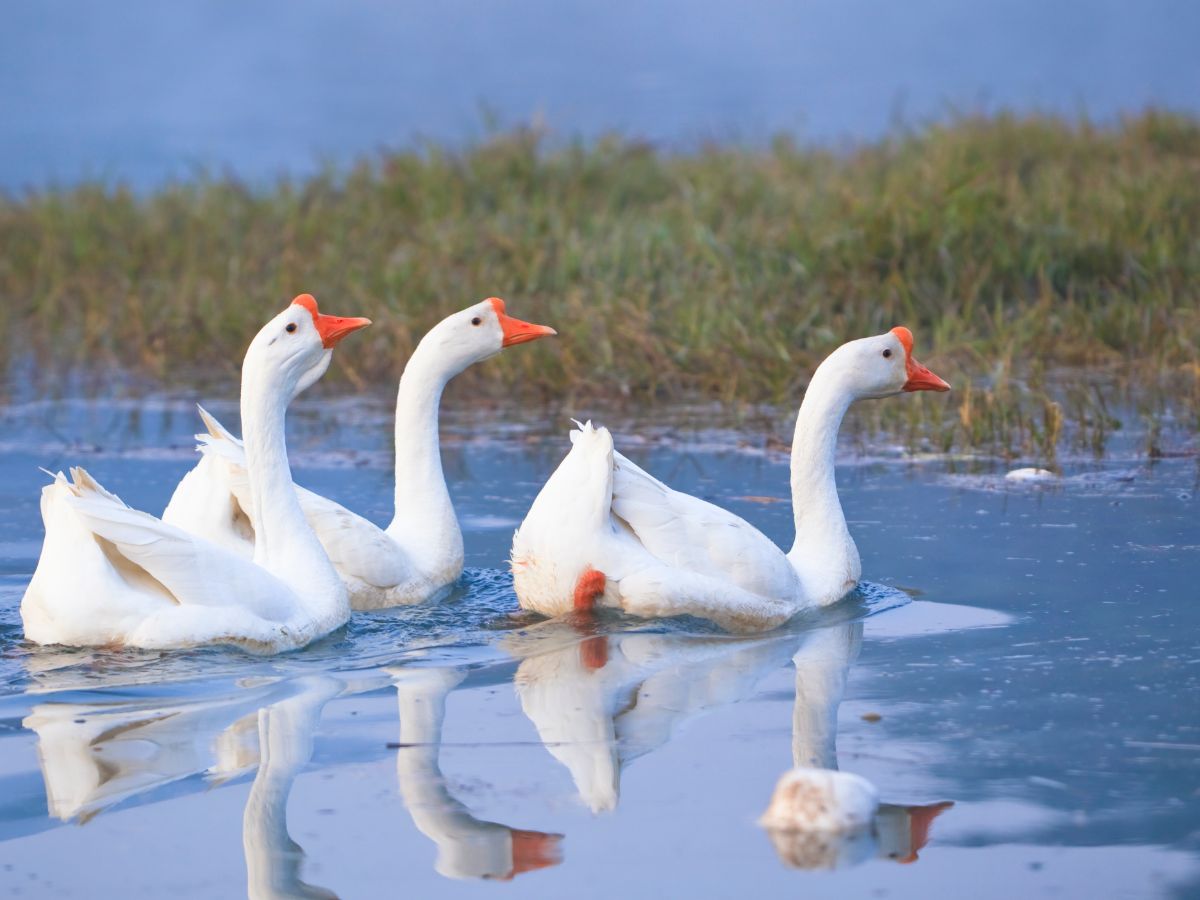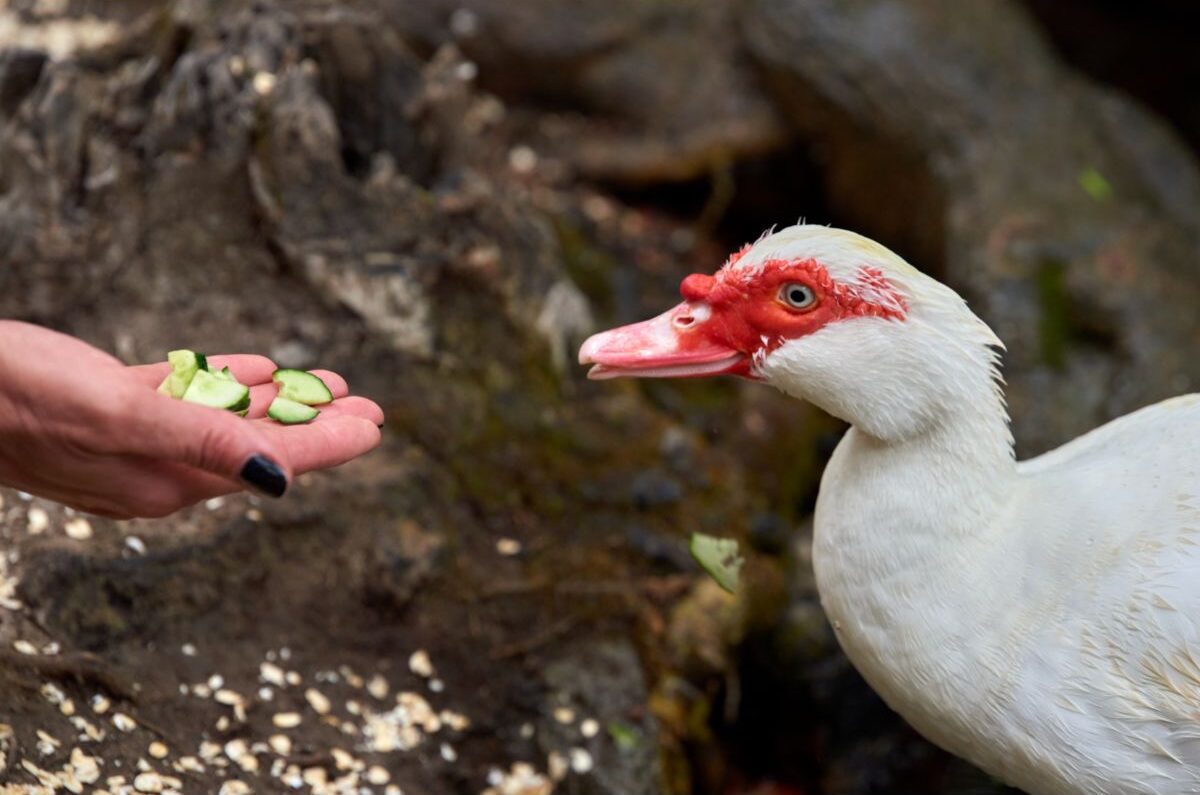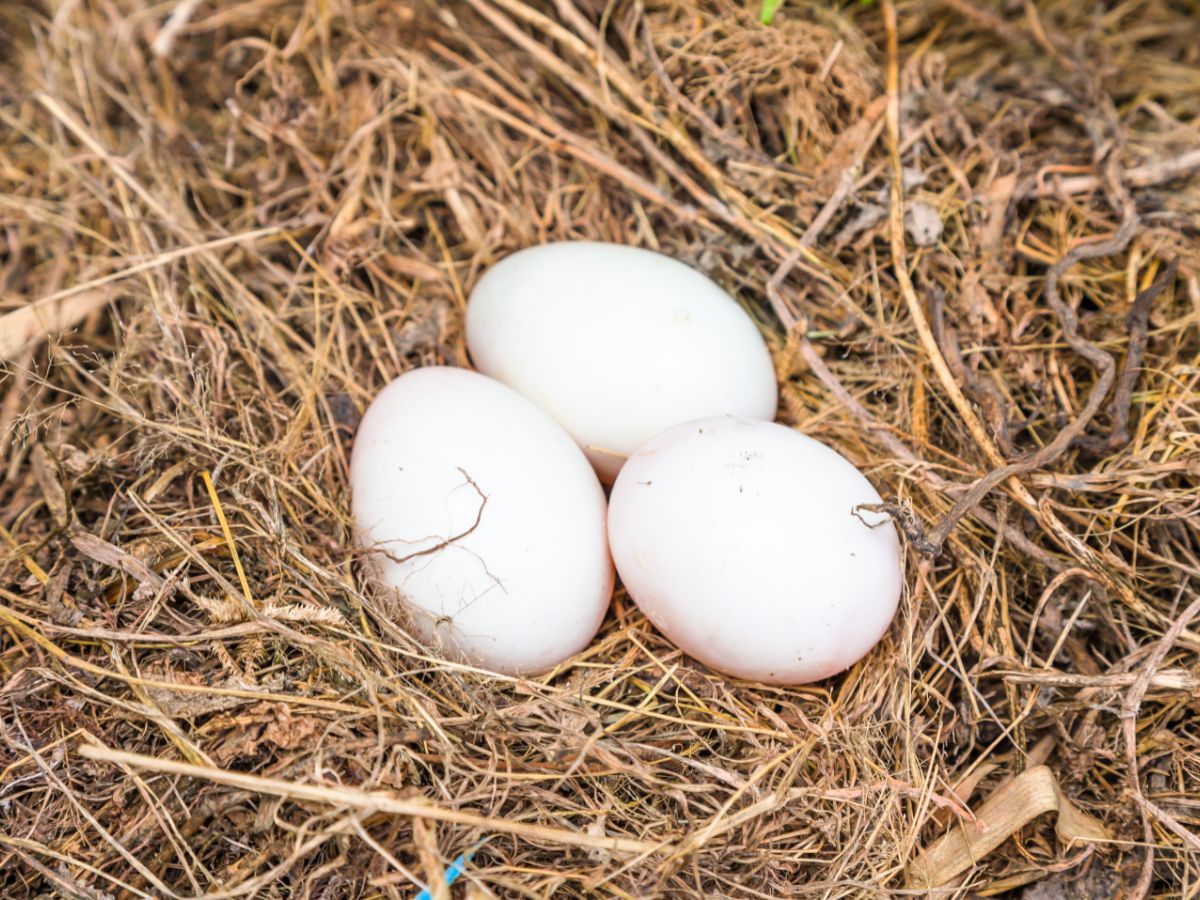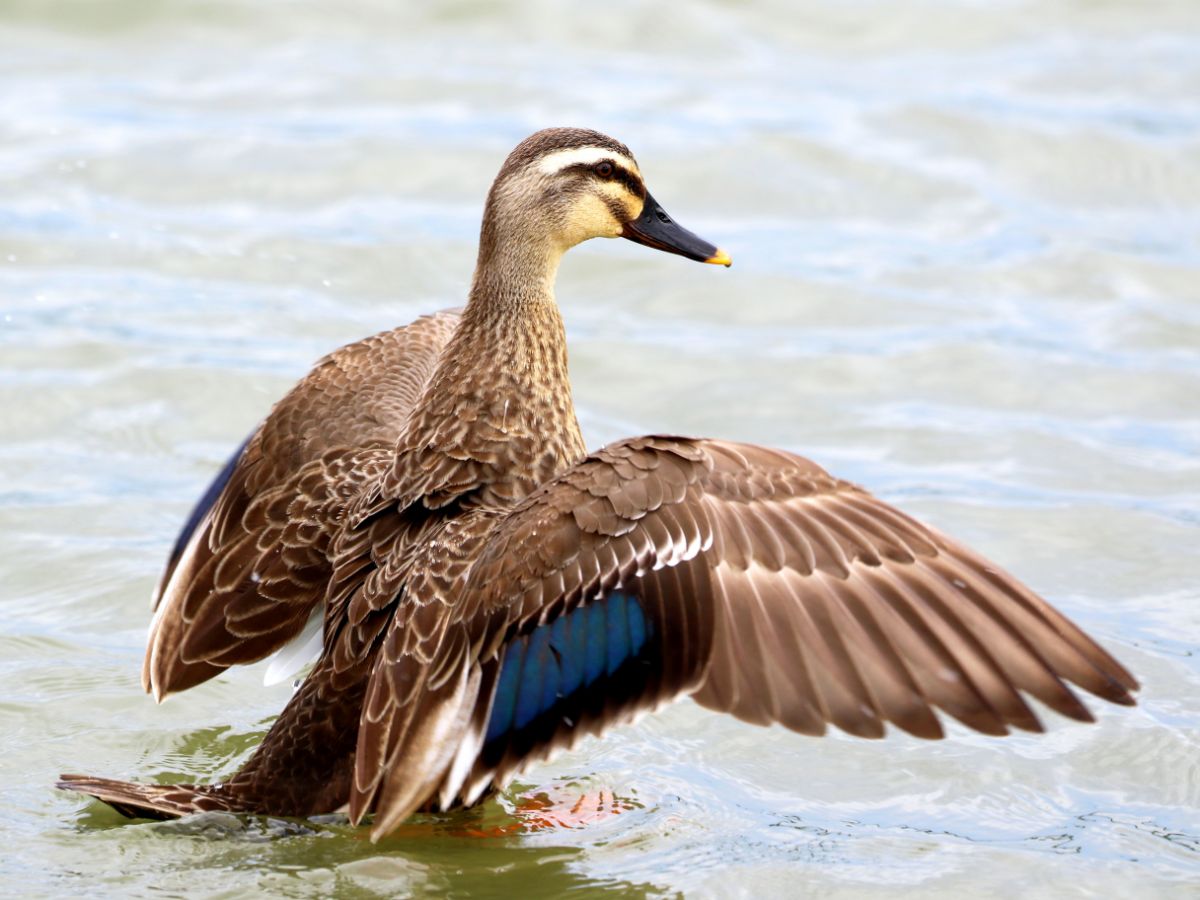Keeping a flock of geese is gaining popularity, and many people prefer keeping geese over chickens or ducks. If you’re looking to keep geese as starter pets for your backyard farm, you may be interested to know which are the best goose breeds for beginners and what raising these different breeds involves.
A few goose breeds are suitable for beginners: African geese, American Buff, Chinese, Embden, and Pilgrim geese. Most domestic species of geese are easy to look after, and a few more breeds for beginners include the Roman geese, Sebastopol, Shetland, and Toulouse.
The domesticated geese breeds differ significantly in temperament, physical features, and ability to find their own food. Most geese originated from other parts of the world, including Scotland and France, but can also be found locally. Many breeds are suitable for beginners, but not all geese may meet your requirements.
Contents
What Are The Best Goose Breeds For Beginners?
Many geese today are raised for ornamental purposes and kept as pets. Geese are intelligent birds that make excellent pets and even better watchdogs. Unfortunately, many people are afraid of geese due to the misconception that they can bite you and become aggressive. While this can happen sometimes, some geese can be trained to be more submissive and friendly towards strangers.
When looking at raising geese, there are a few breeds to consider, depending on your reason for raising a flock of geese.
1. The African Goose
Uses: Meat and eggs
Weight: 18-22 lbs.
Eggs per year: 35-45
Temperament: gentle
The African Goose comes in two varieties, the white African Goose and the Brown and white African Goose. Despite their name, the African Goose originated in China. Their identifiable feature is their black or orange knobs on top of their beaks. They are mostly gentle, but some breeds may lean towards aggressive behaviors during mating season and when protecting their goslings.

2. The American Buff Goose
Uses: meat, eggs, and pets
Weight: 13-15 lbs.
Eggs per year: 35-50 eggs
Temperament: calm
The American Buff geese have pale brown feathers with soft brown eyes. This breed is affectionate and docile. They are active but quiet and are not known to make as much noise as other geese breeds. The American Buff is generally kept for eggs, meat, weeding, and pets. They are not the smallest or largest breed of geese but are medium in stature and are beautiful to look at.

3. The Toulouse Goose
Uses: meat, eggs, and pets
Weight: 18-20 lbs.
Eggs per year: 25-50
Temperament: calm
The Toulouse Goose has white and gray feathers and originates from France. They are a large breed of geese compared to other species and are not good foragers. The Toulouse requires daily feeding. These geese make excellent pets due to their docile nature. There are a few different breeds of Toulouse, with the Dewlap Toulouse being the biggest breed of domesticated Goose.

4. The Chinese Goose
Uses: guards, eggs
Weight: 10-12 lbs.
Eggs per year: 30-50 eggs
Temperament: calm
The Chinese Goose is not for everyone. They make great guardians due to their load and protective nature. However, they are one of the loudest geese breeds, honk often, and are unsuitable if you live in suburban areas. Chinese geese belong to the smaller domesticated breed of geese and characterized by a knob at the base of their beak.

5. The Shetland Goose
Uses: meat, ornamental
Weight: 7-10 lbs.
Eggs per year: 15-30
Temperament: Feisty
The Shetland Geese originated in Scotland and are great foragers. This means they are an easy breed to keep since they find their own feed. The ganders are white, while the Goose is gray. They are a small breed of geese and are known to have a feisty disposition; however, they can be trained to be gentle. They have powerful wings and, unlike many other geese, can fly.
6. The Embden Goose
Uses: Meat, pet, ornamental
Weight: 20-31 lbs.
Eggs per year: 15-30
Temperament: calm
The Embden geese are a popular domestic Goose breed originating in Germany. These geese are white in color with orange bills and feet. They typically have blue eyes and were commercially bred to be used as meat. They make excellent pets and are great as alarms due to their territorial nature. They have a calm disposition but can get aggressive to protect their goslings.

7. The Roman Tufted Goose
Uses: pets, ornamental, guards
Weight: 10-12 lbs.
Eggs per year: 25-35
Temperament: docile
The Roman tufted Goose originated in Italy and, depending on the breed, can either have a smooth or tufted head. They are a friendly breed of Goose and are great pets. They can be raised for meat and eggs but are mostly kept as pets and guards and used for ornamental purposes. Unfortunately, this breed may be difficult to find because they are endangered. Still, they are among the best breeds for beginners.

8. The Pilgrim Goose
Uses: eggs, ornamental, weeding
Weight: 20-25 lbs.
Eggs per year: 20-45
Temperament: docile
The Pilgrim Goose is a medium-weight Goose breed used for eggs and weeding, and they are also foragers and are great at finding their own food. They have a quiet, calm, docile disposition and are friendlier than other geese breeds. The male pilgrim geese have different colors compared to the females. Typically the males have white feathers, and the females have gray feathers. They aren’t known to be noisy but will honk when threatened.

9. The Sebastopol Goose
Uses: guards, eggs, and meat
Weight: 12-14 lbs.
Eggs per year: 25-25
Temperament: quiet, docile
The Sebastopol Goose has a quiet and docile temperament and isn’t prone to shedding many feathers. However, they can’t fly well and have beautiful white twisted feathers. They are used mainly for ornamental purposes or as pets. They are quiet and gentle and are great pets for beginners looking for a beautiful flock of geese to raise.

10. Pomeranian Goose
Uses: eggs, meat, pets
Weight: 15-22 lbs.
Eggs per year: 30
Temperament: calm, very friendly if raised as goslings
Pomeranian geese belong to the large, heavy goose breeds and have a calm character. They can become especially affectionate and friendly towards their owners if you have already raised them as goslings.
Their plumage is gray or spotted gray and white and they have a loud voice. So if you have neighbors who might be bothered by them, you’re better off choosing a different goose breed. Unlike other geese, Pomeranian geese don’t usually need to be fed in the summer.

11. Czech Goose (Bohemian Goose)
Uses: meat, pet
Weight: 26-30 lbs.
Eggs per year: 15-20
Temperament: temperamental
The Czech Goose, also called Bohemian Goose, is one of the small goose breeds, but has a temperamental character.
Like most geese, these geese can get very noisy and will sound the alarm if anyone approaches the property. Their plumage is white and their legs and beaks are orange.
Their smaller stature means they need less space to roam and be housed than larger breeds. This makes them a good first choice for beginners, if you prefer a slightly more active goose breed and the neighbors are not bothered by their loud calls (or they live far enough away).

Things To Consider When Choosing A Goose Breed
If you can’t decide which goose breed is best for you, there are a few factors to consider before deciding on a breed. Many domestic species of Goose are lovely to keep. They are excellent guardians, especially if you’re raising other animals like chickens.
- The cost of raising geese- most breeds cost between $14-$25 per Goose.
- Talk to someone you know about raising geese; if they have the same breed you’re interested in, they may be able to share some valuable advice.
- Research breed traits, typically behaviors, space requirements, and temperaments to make sure your choice of goose breed is suitable for you
- If there are predators, your geese should be protected with electric fencing.
- Some geese can forage and find their own feed, mainly grass, while others need to be fed daily.
- What purpose will the geese serve? Are they being kept as pets, for eggs, ornamental purposes, or as guards?
- Are you happy to keep noisy geese?
- Geese need housing. Have you got sufficient space for housing? Some breeds may require extra heating if it gets very cold in the winter.
- If geese will be around children and other people, it’s better to go for a more docile breed.
Conclusion
There are a few breeds of domesticated Goose that are suitable for beginners. When choosing the best breed for you, factors like if they can forage, their temperament and the noise geese make should be considered. Breeds like the American Buff, The African, the Pilgrim, and the Toulouse make great starter flocks for beginners.
If you wonder if and how you can keep geese and chickens together, you can read this article.




